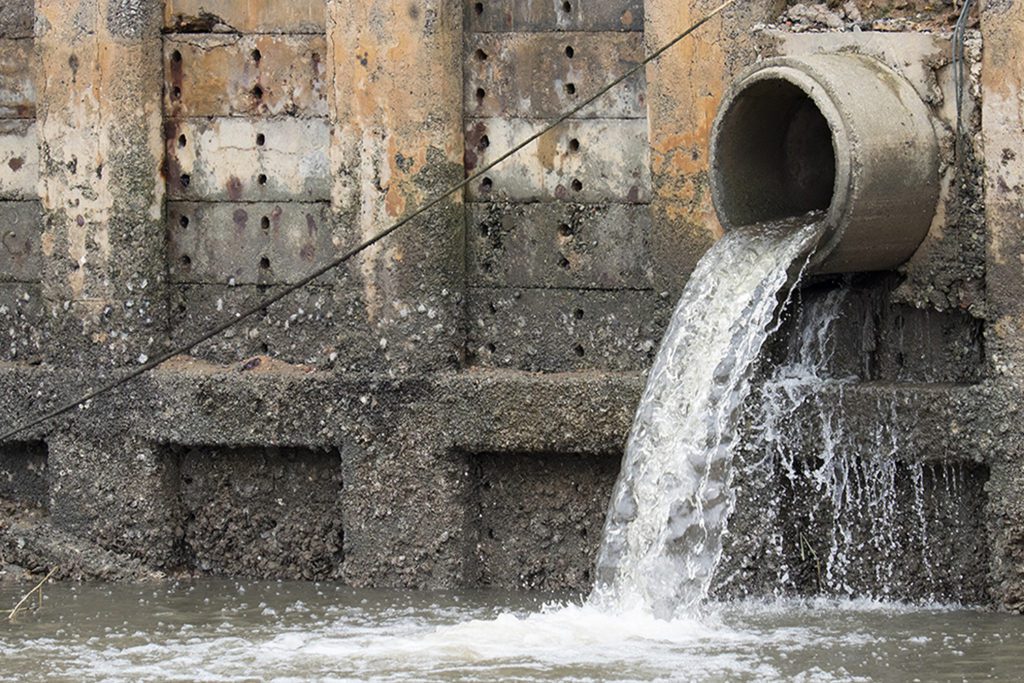Be Proactive! Why Community Associations Should Pay Attention to Their Stormwater Management Systems
Reading Time: 4 minutes
Stormwater management systems if managed correctly can greatly enhance the value and safety of a community. As community associations managers and governing boards are well aware, however, stormwater management systems can be expensive, and their operation and maintenance highly contentious. This blog provides an overview of what a stormwater management system is, the challenges associations face with respect to these systems, and the proactive measures association leaders should take to minimize risk associated with stormwater management.
Stormwater Management Systems (SMS)
A stormwater management system (“SMS”) is defined by Florida statute (Sections 373.403(10) and 403.031(16)) as a system that is designed and constructed or implemented to control water discharges necessitated by rainfall events, incorporating methods to collect, convey, store, absorb, inhibit, treat, use, or reuse water to prevent or reduce flooding, overdrainage, environmental degradation, and water pollution or otherwise affect the quality and quantity of system discharges. The two basic types of SMS are Retention Systems (swales or ditches with grassy slopes designed to capture runoff and allow it to seep through the soil) and Detention Systems (ponds designed to allow material to settle and absorb before stormwater is gradually released).
Regulation of SMS
Florida was the first state in the nation to adopt rules requiring that stormwater runoff from new land development be treated to reduce pollutant load. The original stormwater rules went into effect in 1982 and were overhauled by the 1990 State Water Resource Implementation Rule. Florida’s stormwater rules are technology-based and are designed to greatly reduce post-development pollutant discharge that cause or contribute to lower water quality standards. The rules rely on design criteria for stormwater system best management practices that are periodically updated and a performance standard or goal for a minimum level of stormwater treatment.
The Florida Department of Environmental Protection (FDEP), local governments, and the water management districts each play a role in governing stormwater management. Most activities that generate new or additional stormwater runoff require an Environmental Resources Permit (ERP) from the FDEP. Those that discharge into municipal separate storm sewer systems are covered by the National Pollutant Discharge Elimination System.
SMS and Community Associations
Most planned communities and condominium developments were developed or upgraded with either Retention or Detention stormwater management systems or both, governed by an ERP or NPDES permit. Unlike many other construction-related permits, stormwater control obligations and maintenance of the stormwater systems continue for the associations that assume such permits, even after construction activities end.
Generally speaking, transfer of responsibilities for stormwater systems maintenance from the developer to the association occurs once the common areas (where SMS facilities are located) and a majority of units or lots are conveyed to the association. At the time of conveyance, the regulatory agency typically will confirm that the system is in good working condition and in full compliance with the permit as a condition of transfer.
Maintenance and improvement of stormwater systems can be very costly, especially in flood-prone or environmentally sensitive areas, and disputes over responsibility for that cost arise frequently. Most association Declarations require some degree of common area maintenance, which most often include the community’s Detention and Retention systems. Many newer associations look to the developer for ongoing obligations, while developers may attempt to shift responsibility even prior to permit transfer. In certain cases, the developer may no longer be solvent or identifiable, and associations are faced with the costs of stormwater systems upkeep even if they are not the permit holder.
Best SMS Practices for Associations
Poorly maintained or failed stormwater systems not only trigger regulatory enforcement action and fines but also leave Associations highly susceptible to serious legal claims for property damage and even personal injury by residents, guests, and neighbors.
Here are five essential best practices community associations should embrace to minimize risk associated with stormwater management:
- Annual budgeting AND reserve funds must be realistically sufficient to cover all usual, anticipated, and extraordinary stormwater management expenses
- Associations should work with their accountants to ensure proper accounting is made for stormwater management costs
- Association documents should clearly address stormwater systems responsibilities
- Association insurance coverage of stormwater-related risk should be clearly addressed and understood.
- The association Board should ensure that REGULAR and COMPREHENSIVE inspection and prophylactic maintenance of SMS is a priority
Proper governing of SMS as an essential and highly regulated infrastructure component of every association will help associations avoid unanticipated and expensive reactive costs associated with these systems. Associations should seek the assistance of their accounting, engineering, insurance, and legal professionals as necessary to ensure prophylactic management of SMS is appropriately conducted.


